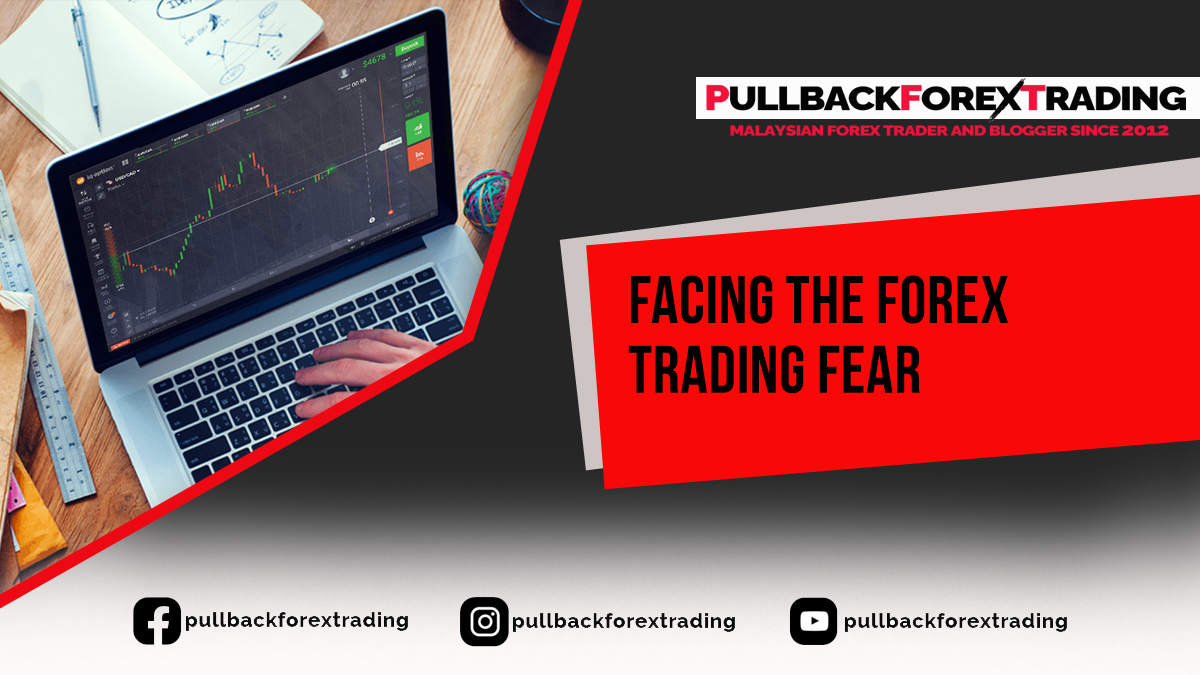
WHAT IS TRADING FEAR AND HOW TO DEAL WITH IT
Trading fears are common among both beginner and experienced traders, and they can significantly impact decision-making and trading performance. Overcoming these fears is essential to becoming a successful and consistent trader. Let’s explore the common types of trading fears, their causes, and strategies for managing them effectively.
1. Fear of Losing Money
- Description: One of the most prevalent fears is the fear of loss. Traders often hesitate to enter trades or close winning positions prematurely due to the worry that they’ll lose money.
- Cause: This fear usually stems from the natural aversion to loss that humans have. People feel losses more acutely than gains (a concept known as loss aversion). Additionally, past experiences of losing trades can intensify this fear.
- Impact: Fear of loss can lead to hesitation, missed opportunities, and poor trade management. Traders may hold onto losing trades for too long, hoping the market will reverse, or avoid placing trades altogether.
Dapatkan update lebih cepat dan pantas melalui telegram kami.
How to Manage It:
- Accept Losses as Part of Trading: Understand that losses are inevitable in trading, even for the most successful traders. It’s essential to focus on long-term profitability rather than obsessing over individual losses.
- Risk Management: Always use proper risk management techniques, such as setting stop-loss orders and only risking a small percentage of your account per trade. Knowing that your losses are limited can reduce the fear.
- Develop a Plan: Having a solid trading plan with clear entry and exit strategies will give you confidence in your decisions and help reduce emotional reactions to losses.
2. Fear of Missing Out (FOMO)
- Description: FOMO occurs when traders feel compelled to enter the market because they fear missing out on a potential profitable move. It often arises when markets are volatile, and traders see prices moving quickly.
- Cause: This fear is driven by the desire to make quick gains and the anxiety that you might miss an opportunity. Social media and trading communities can amplify FOMO when others share their wins or market opinions.
- Impact: FOMO can lead to impulsive and poorly planned trades. Traders may enter positions without proper analysis, often resulting in bad timing and losses.
How to Manage It:
- Stick to Your Plan: Having a well-defined trading strategy helps reduce the urge to jump into trades impulsively. Focus on executing your plan rather than chasing market moves.
- Avoid Overexposure to Market Noise: Limit the influence of social media, news, or other traders’ opinions that may trigger FOMO. Learn to trust your analysis and decision-making.
- Patience: Understand that the market will always present new opportunities. Missing one trade doesn’t mean you’ll miss out on all future gains. Staying patient can prevent costly mistakes.
3. Fear of Being Wrong
- Description: Many traders fear being wrong and making incorrect decisions. This fear often stems from a need for perfection or a belief that making wrong decisions reflects poorly on their abilities.
- Cause: Fear of being wrong is linked to ego and the desire to avoid feeling incompetent or making mistakes. Traders may feel embarrassed or frustrated when a trade doesn’t go as planned.
- Impact: This fear can lead to hesitation in entering trades, second-guessing decisions, or holding onto losing trades because traders don’t want to admit they were wrong.
How to Manage It:
- Embrace Imperfection: No trader is right 100% of the time, and being wrong is a natural part of the learning process. Focus on the overall success of your trading strategy rather than individual trade outcomes.
- Separate Ego from Trading: Trading is about probabilities and outcomes, not about being right or wrong. Focus on making good decisions based on your analysis and strategy, rather than on the outcome of individual trades.
- Learn from Mistakes: Instead of fearing being wrong, view mistakes as learning opportunities. Analyze what went wrong and use that information to improve your future trades.
4. Fear of Letting Profits Turn into Losses
- Description: This fear manifests when traders are in profitable trades but become anxious that the market will reverse, causing them to lose their unrealized profits. As a result, they often close trades too early.
- Cause: This fear arises from a lack of confidence in a trading strategy or a fear of market unpredictability. It can also be linked to the desire to “lock in” gains quickly to avoid regret.
- Impact: Closing trades prematurely can significantly limit potential profits. Consistently exiting trades early due to fear can prevent you from fully capitalizing on a winning strategy.
How to Manage It:
- Trust Your Strategy: If your trading plan is based on sound analysis, trust that it will perform over the long term. Avoid micromanaging trades out of fear.
- Use Trailing Stops: A trailing stop can help lock in profits while allowing the trade to continue running if the market moves in your favor. This way, you can secure gains without closing the position too early.
- Shift Your Mindset: Focus on long-term profitability rather than short-term fluctuations. Recognize that small price retracements are normal in trending markets.
5. Fear of Overtrading
- Description: Some traders fear that they will overtrade, especially after experiencing losses or a streak of wins. Overtrading occurs when traders take too many trades, often driven by emotions like revenge trading (after losses) or greed (after wins).
- Cause: This fear is often tied to emotional trading and the desire to recover losses quickly or capitalize on perceived opportunities.
- Impact: Overtrading can lead to poor decision-making, increased transaction costs, and risk of significant losses. It also exhausts mental and emotional energy, reducing trading effectiveness.
How to Manage It:
- Set Trading Limits: Define a maximum number of trades per day or week. This will prevent you from overtrading and help maintain discipline.
- Take Breaks: After a series of wins or losses, take time away from the charts. This helps clear your mind and reduces the emotional drive to overtrade.
- Evaluate Trade Quality Over Quantity: Focus on finding high-quality trade setups rather than trading frequently. A few good trades can be more profitable than many impulsive ones.
6. Fear of Market Uncertainty
- Description: Many traders fear the inherent uncertainty of the Forex market. No one can predict the market with absolute certainty, and unexpected events (e.g., geopolitical events, economic data releases) can cause significant price swings.
- Cause: Market uncertainty can lead to anxiety and hesitation because traders want to avoid getting caught in a sudden adverse move.
- Impact: Fear of uncertainty can cause paralysis, leading to missed trades or excessive caution that prevents traders from seizing profitable opportunities.
How to Manage It:
- Prepare for Volatility: Stay informed about upcoming economic events and potential market movers. While you can’t predict every event, being prepared can reduce the fear of the unknown.
- Trade with a Plan: Having a well-thought-out trading plan that includes risk management measures can give you confidence, even in uncertain markets.
- Focus on Probabilities: Accept that the market is uncertain, and instead of trying to predict every move, focus on managing risk and taking trades with a favorable risk-to-reward ratio.
7. Fear of Success
- Description: Surprisingly, some traders fear success because they worry that once they start winning, they’ll feel pressure to keep performing at a high level.
- Cause: This fear often stems from self-doubt and imposter syndrome, where traders question whether they’re deserving of success or fear the expectations that come with it.
- Impact: Fear of success can lead to self-sabotage, where traders unconsciously make poor decisions or withdraw from the market after experiencing a profitable period.
How to Manage It:
- Acknowledge the Fear: Recognize that fear of success is common and natural. Understanding that success comes with both rewards and challenges can help you prepare for it emotionally.
- Set Realistic Goals: Instead of aiming for perfection, focus on achieving consistent progress and learning from each trading experience, whether it’s profitable or not.
- Build Confidence Gradually: Gradual success helps build confidence. As you continue trading successfully, you’ll feel more comfortable handling the pressures that come with success.
Conclusion:
Fear is a natural part of trading, but learning to manage it is key to becoming a successful trader. By using risk management strategies, developing a solid trading plan, and practicing emotional discipline, you can reduce the impact of fear on your trading decisions. Understanding and accepting the emotions that come with trading will help you approach the market with greater confidence and consistency, leading to better long-term results.
ADMIN
22/10/24


